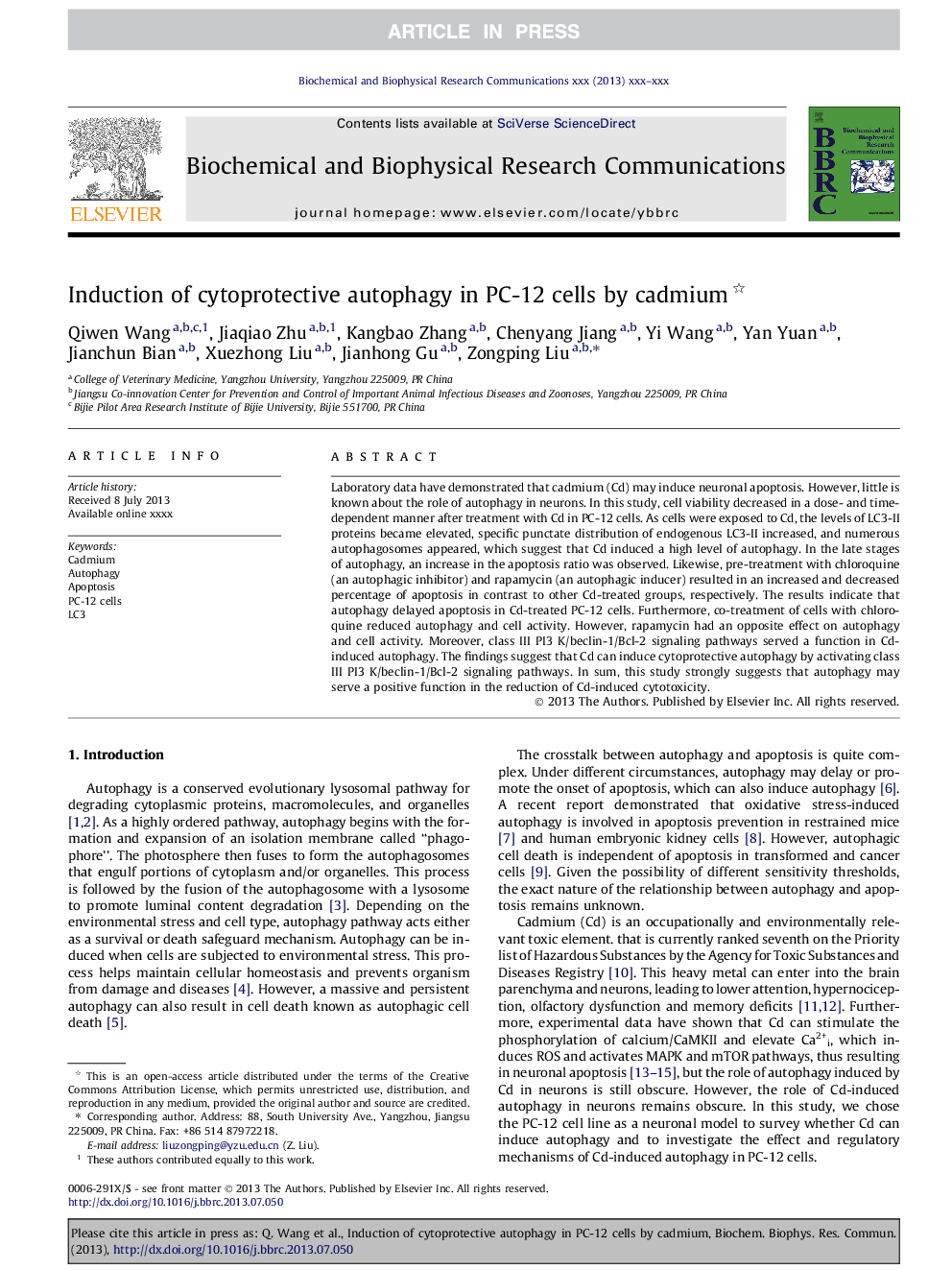| Article ID | Journal | Published Year | Pages | File Type |
|---|---|---|---|---|
| 10758486 | Biochemical and Biophysical Research Communications | 2013 | 7 Pages |
Abstract
Laboratory data have demonstrated that cadmium (Cd) may induce neuronal apoptosis. However, little is known about the role of autophagy in neurons. In this study, cell viability decreased in a dose- and time-dependent manner after treatment with Cd in PC-12 cells. As cells were exposed to Cd, the levels of LC3-II proteins became elevated, specific punctate distribution of endogenous LC3-II increased, and numerous autophagosomes appeared, which suggest that Cd induced a high level of autophagy. In the late stages of autophagy, an increase in the apoptosis ratio was observed. Likewise, pre-treatment with chloroquine (an autophagic inhibitor) and rapamycin (an autophagic inducer) resulted in an increased and decreased percentage of apoptosis in contrast to other Cd-treated groups, respectively. The results indicate that autophagy delayed apoptosis in Cd-treated PC-12 cells. Furthermore, co-treatment of cells with chloroquine reduced autophagy and cell activity. However, rapamycin had an opposite effect on autophagy and cell activity. Moreover, class III PI3 K/beclin-1/Bcl-2 signaling pathways served a function in Cd-induced autophagy. The findings suggest that Cd can induce cytoprotective autophagy by activating class III PI3 K/beclin-1/Bcl-2 signaling pathways. In sum, this study strongly suggests that autophagy may serve a positive function in the reduction of Cd-induced cytotoxicity.
Related Topics
Life Sciences
Biochemistry, Genetics and Molecular Biology
Biochemistry
Authors
Qiwen Wang, Jiaqiao Zhu, Kangbao Zhang, Chenyang Jiang, Yi Wang, Yan Yuan, Jianchun Bian, Xuezhong Liu, Jianhong Gu, Zongping Liu,
